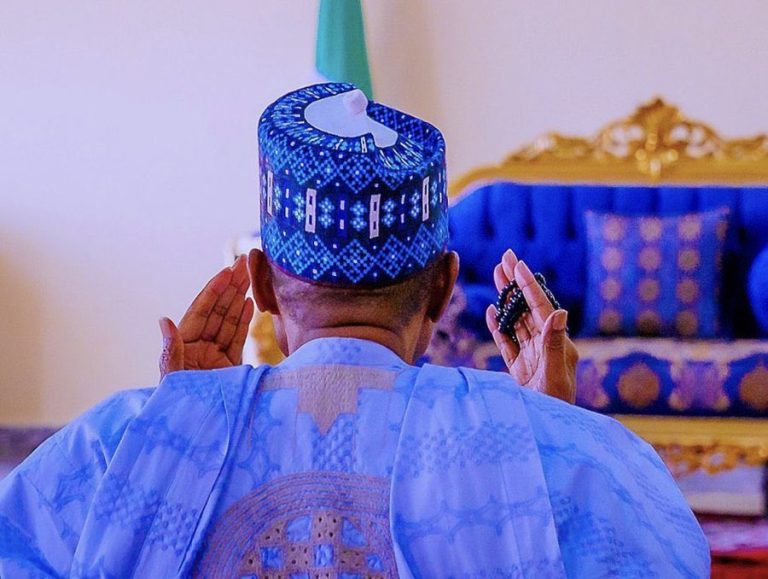The presidency of Muhammadu Buhari is a complex narrative, marked by relentless resistance and the pursuit of reform. It is a saga that underscores the intricate dance between leadership and opposition, ambition and sabotage. From the moment he took office in 2015, the shadows of opposition loomed large, casting a pall over his ambitious vision for a nation in desperate need of reform. This narrative unfolds not merely as a chronicle of events but as a tapestry woven with threads of struggle, ambition, and the unyielding spirit of a leader determined to steer his country towards a brighter future.
The Niger Delta Avengers emerged as a formidable adversary, their actions reverberating through the heart of Nigeria’s economy. With crude oil production plummeting from 2.1 million barrels per day to under one million, the nation found itself grappling with an unprecedented crisis. This was not merely a statistical decline; it was a seismic shift that sent shockwaves through the economy. As global oil prices spiraled downward from $140 to below $50 per barrel, the weight of the world seemed to rest on Buhari’s shoulders. It was a moment that demanded not just leadership but an unwavering resolve to navigate the storm.
In the face of such adversity, Buhari sought to pivot the nation towards agricultural reform, envisioning a Nigeria that could achieve food self-sufficiency. However, as he laid the groundwork for this ambitious initiative, armed banditry erupted in the North-West, targeting farming communities with a ferocity that was both alarming and calculated. The very foundation of progress was under siege, as farmers found themselves caught in a crossfire that threatened not only their livelihoods but the very fabric of society. The irony was palpable; as Buhari endeavored to cultivate a new era of agricultural prosperity, radical elements conspired to uproot it.
Legislative reform was another cornerstone of Buhari’s vision. He proposed amendments to the Criminal Justice Act, aiming to strengthen the rule of law and restore faith in the judicial system. Yet, within the hallowed halls of the National Assembly, vested interests conspired to thwart his efforts. The bill, which held the promise of a more just society, languished in obscurity, trapped in a web of political maneuvering and resistance. It was a poignant reminder that progress in governance often encounters the inertia of entrenched interests, a dance of power that prioritizes self-preservation over national advancement.
The resistance was not limited to the political arena; it seeped into the very fabric of civil society. One particularly striking incident illustrated the lengths to which some would go to challenge authority. The Chief of Army Staff, en route to a Passing-Out Parade, found his path obstructed by radical elements. Despite appeals for reason, they refused to yield. When the army responded to restore order, the narrative twisted, and Buhari was painted as a tyrant. The irony was not lost on those who witnessed the events unfold; the same individuals who obstructed the military now wielded the narrative as a weapon against the president.
As the years rolled on, Buhari’s administration faced an array of challenges that tested the limits of governance. The Boko Haram insurgency continued to plague the Northeast, while economic challenges loomed like dark clouds on the horizon. Yet, through it all, Buhari remained steadfast, embodying the spirit of a leader who refused to be cowed by the forces of sabotage. His resolve was not merely a reflection of personal ambition but a commitment to the ideals of a nation that yearned for stability, security, and prosperity.
The narrative of Buhari’s presidency is not merely a tale of struggle; it is a story of the indomitable spirit of a leader who dared to dream of a better Nigeria. It is a testament to the resilience of a nation that, despite the odds, continues to strive for progress. The challenges he faced were formidable, but they also served as a crucible for transformation. In the face of sabotage, Buhari sought to galvanize the nation, urging citizens to rally around a common purpose—a Nigeria that could rise above its challenges and emerge stronger.
As Nigeria navigates the tumultuous waters of its political landscape, the lessons learned from Buhari’s tenure will resonate for generations to come. In the end, it is not merely the events that define a presidency but the spirit of resilience that emerges in the face of adversity. The story of Buhari’s Nigeria is still being written, and its chapters will undoubtedly reflect the enduring struggle for a nation that aspires to greatness.
By Abdul-Azeez Suleiman


